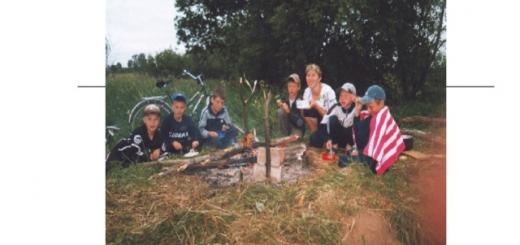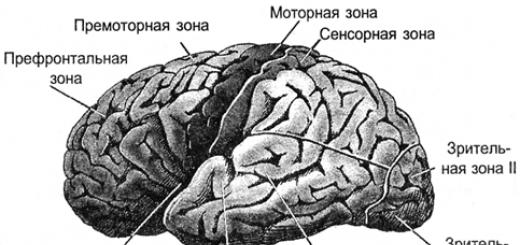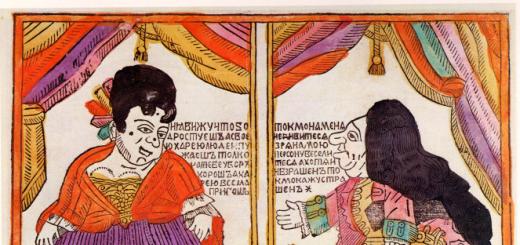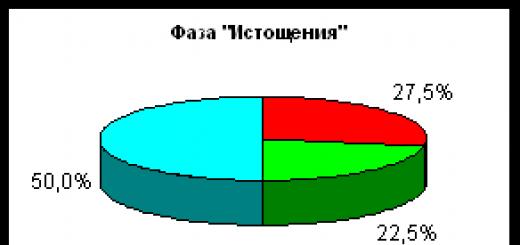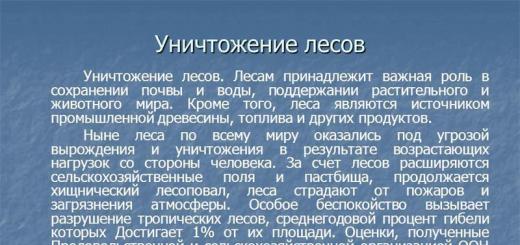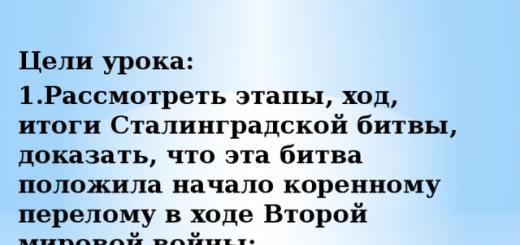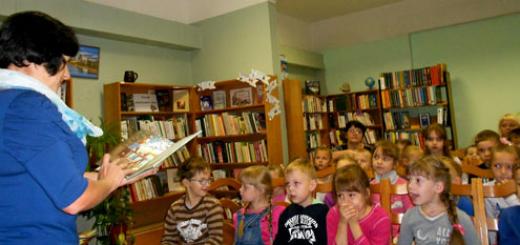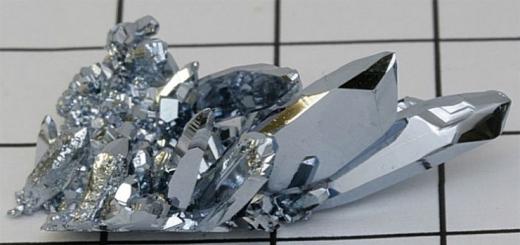We often pronounce established phrases without delving into their meaning. Why, for example, do they say “goal like a falcon”? Who is a “smoking room”? Why, finally, do they carry water to the offended? We will reveal the hidden meaning of these expressions.
Hot spot
The expression “green place” is found in the Orthodox funeral prayer (“... in a green place, in a place of peace ...”). This is how heaven is called in texts in Church Slavonic.
The meaning of this expression was ironically rethought by the mixed-democratic intelligentsia of the times of Alexander Pushkin. The language game was that our climate does not allow growing grapes, so in Rus' intoxicating drinks were produced mainly from cereals (beer, vodka). In other words, a hot place means a drunken place.
They carry water to the offended
There are several versions of the origin of this saying, but the most plausible seems to be the one associated with the history of St. Petersburg water carriers. The price of imported water in the 19th century was about 7 kopecks in silver per year, and of course there were always greedy traders who inflated the price in order to make money. For this illegal act, such unfortunate entrepreneurs were taken away from their horse and forced to carry barrels in a cart on themselves.
Shabby look

This expression appeared under Peter I and was associated with the name of the merchant Zatrapeznikov, whose Yaroslavl linen manufactory produced both silk and wool, which were in no way inferior in quality to products from foreign factories. In addition, the manufactory also produced very, very cheap hemp striped fabric - motley, “shabby” (rough to the touch), which was used for mattresses, trousers, sundresses, women’s headscarves, work robes and shirts.
And if for rich people such a robe was home clothes, then for the poor, things from the meal were considered “going out” clothes. A shabby appearance spoke of a person’s low social status.
Sieve friend
It is believed that a friend is called this by analogy with sieve bread, usually wheat. To prepare such bread, much finer flour is used than in rye. To remove impurities from it and make the culinary product more “airy”, not a sieve is used, but a device with a smaller cell - a sieve. That's why the bread was called sieve bread. It was quite expensive, was considered a symbol of prosperity and was put on the table to treat the most dear guests.
The word “sieve” when applied to a friend means the “highest standard” of friendship. Of course, this phrase is sometimes used in an ironic tone.
7 Fridays a week

In the old days, Friday was a market day, on which it was customary to fulfill various trading obligations. On Friday they received the goods, and agreed to give the money for it on the next market day (Friday of the next week). Those who broke such promises were said to have seven Fridays a week.
But this is not the only explanation! Friday was previously considered a day free from work, so a similar phrase was used to describe a slacker who had a day off every day.
Where did Makar drive his calves?
One of the versions of the origin of this saying is as follows: Peter I was on a working trip to the Ryazan land and communicated with the people in an “informal setting.” It so happened that all the men he met on the way called themselves Makars. The Tsar was at first very surprised, and then said: “From now on, you will all be Makars!” Allegedly, from then on, “Makar” became a collective image of the Russian peasant and all peasants (not only Ryazan) began to be called Makars.
Sharashkin's office
The office got its strange name from the dialect word “sharan” (“trash”, “golytba”, “crook”). In the old days, this was the name given to a dubious association of swindlers and deceivers, but today it is simply an “undignified, unreliable” organization.
If we don't wash, we'll ride
In the old days, skilled laundresses knew that well-rolled linen would be fresh, even if the washing was not done at all brilliantly. Therefore, having made a mistake in washing, they achieved the desired impression “not by washing, but by rolling.”
Goal like a falcon

“As naked as a falcon,” we say about extreme poverty. But this saying has nothing to do with birds. Although ornithologists claim that falcons actually lose their feathers during molting and become almost naked!
“Falcon” in ancient times in Rus' was called a ram, a weapon made of iron or wood in the shape of a cylinder. He was hung on chains and swung, thus breaking through the walls and gates of enemy fortresses. The surface of this weapon was flat and smooth, simply put, bare.
In those days, the word “falcon” was used to describe cylindrical tools: an iron crowbar, a pestle for grinding grain in a mortar, etc. Falcons were actively used in Rus' before the advent of firearms at the end of the 15th century.
Alive smoking room
“The smoking room is alive!” - an expression from the ancient Russian children's game "Smoking Room". The rules were simple: the participants sat in a circle and passed a burning torch to each other, saying: “Alive, alive, the smoking room! The legs are thin, the soul is short.” The one in whose hands the torch went out left the circle. It turns out that the “smoking room” is not a person at all, as one might think, but a burning sliver of which in the old days lit the hut. It barely burned and smoked, as they called it “smoking” back then.
Alexander Pushkin did not miss the chance to take advantage of this linguistic ambiguity in an epigram to the critic and journalist Mikhail Kachenovsky:
- How! Is the Kurilka journalist still alive?
- Lively! still dry and boring
And rude, and stupid, and tormented by envy,
Everything squeezes into its obscene sheet
Both old nonsense and new nonsense.
- Ugh! tired of the smoking-room journalist!
How to extinguish a stinking splinter?
How to kill my smoking room?
Give me advice. - Yes... spit on him.
Drunk as hell

We find this expression in Alexander Pushkin, in the novel in verse “Eugene Onegin”, when talking about Lensky’s neighbor, Zaretsky:
Falling off a Kalmyk horse,
Like a drunk Zyuzya, and the French
Got captured...
The fact is that in the Pskov region, where Pushkin was in exile for a long time, “zyuzya” is called a pig. In general, “as drunk as a drunk” is an analogue of the colloquial expression “drunk as a pig.”
Sharing the skin of an unkilled bear
It is noteworthy that back in the 30s of the 20th century in Russia it was customary to say: “Sell the skin of an unkilled bear.” This version of the expression seems closer to the original source, and more logical, because there is no benefit from a “divided” skin; it is valued only when it remains intact. The primary source is the fable “The Bear and Two Comrades” by the French poet and fabulist Jean La Fontaine (1621 -1695).
Dusty reality

In the 16th century, during fist fights, dishonest fighters took bags of sand with them, and at the decisive moment of the fight they threw it into the eyes of their opponents. In 1726, this technique was prohibited by a special decree. Currently, the expression “show off” is used to mean “to create a false impression of one’s capabilities.”
The promised one has been waiting for three years
According to one version, it is a reference to a text from the Bible, to the book of the prophet Daniel. It says: “Blessed is he who waits and attains one thousand and thirty-five days,” that is, three years and 240 days. The biblical call for patient waiting was humorously reinterpreted by the people, because the full saying goes like this: “They wait for the promised for three years, but refuse the fourth.”
Retired goat drummer

In the old days, among traveling troupes, the main actor was a scientist, a trained bear, followed by a “goat”, dressed in disguise with a goat skin on his head, and only behind the “goat” was a drummer. His task was to beat a homemade drum, inviting the audience. Eating odd jobs or handouts is quite unpleasant, and then the “goat” is not real, it’s retired.
Leavened patriotism
The expression was introduced into speech by Pyotr Vyazemsky. Leavened patriotism is understood as blind adherence to outdated and absurd “traditions” of national life and categorical rejection of someone else’s, foreign, “not ours.”
Good riddance

In one of Ivan Aksakov’s poems you can read about a road that is “straight as an arrow, with a wide surface that spreads like a tablecloth.” This is how in Rus' people were seen off on a long journey, and no bad meaning was put into them. This original meaning of the phraseological unit is present in Ozhegov’s Explanatory Dictionary. But it also says that in modern language the expression has the opposite meaning: “An expression of indifference to someone’s departure, departure, as well as a desire to get out, wherever.” An excellent example of how ironics rethink stable etiquette forms in language!
Shout to the entire Ivanovskaya
In the old days, the square in the Kremlin on which the bell tower of Ivan the Great stands was called Ivanovskaya. On this square, clerks announced decrees, orders and other documents concerning the residents of Moscow and all the peoples of Russia. So that everyone could hear clearly, the clerk read very loudly, shouting throughout Ivanovskaya.
Dance from the stove

To dance from the stove means to act according to a once and for all approved plan, without using any of your knowledge and ingenuity. This expression became famous thanks to the 19th century Russian writer Vasily Sleptsov and his book “A Good Man.” This is the story of Sergei Terebenev, who returned to Russia after a long absence. The return awakened childhood memories in him, the most vivid of which were dancing lessons.
Here he is standing by the stove, his feet in the third position. Parents and servants are nearby and watch his progress. The teacher gives the command: “One, two, three.” Seryozha begins to make the first “steps,” but suddenly he loses his rhythm and his legs get tangled.
- Oh, what are you, brother! - the father says reproachfully. “Well, go back to the stove and start over.”
The extreme degree of poverty can be expressed in different sayings. Today our focus is on the meaning of the phraseological unit “goal like a falcon.”
Is a falcon a bird or not a bird?
Those people who do not know the origin of the saying are probably perplexed: “How are poverty and the falcon connected?” The falcon is a beautiful, prominent bird, with feathers, that is, not naked. And in general, everything is fine with her. The thing is that the bird has absolutely nothing to do with it. Since the emphasis falls on the second “o,” this refers to part of the device that was used to ram the castle gate. Even a person with minimal knowledge of history will say that a log helped to get inside the fortress, and the smoother it is, the better. Try, for example, to cut down a tree and, with all the branches on the trunk, storm the shelter of some of your enemies. Firstly, it’s inconvenient, and secondly, your army may get injured before the main battle. These are the secrets that the meaning of the phraseological unit “goal like a falcon” keeps.
Poverty and log

If for a tree to be processed is an honor, then for a person not to have “branches” - money, property and other joys of life - is a shame. Note that you cannot say: “She is naked as a falcon.” This means, first of all, the lack of money and property is a concern and a lack of men, and girls do not need to think about it. It's not their headache. The meaning of the phraseological unit “goal like a falcon” clearly tells us this. Or rather, not so much the meaning as what stands behind it - the impossibility of using this expression in relation to a woman.
Incompatibility between matchmaking and poverty
Nowadays it is quite rare to hear the saying we are considering. And all because the time of matchmaking has faded into oblivion. Unless grooms from the elite come to their fabulously wealthy future relatives and ask for their daughter’s hand in marriage. In such cases, you can remember the meaning of the phraseological unit “goal like a falcon”, sometimes the party may be unsuitable, that is, poor.

Nowadays, when emancipation is sweeping across the country, it is difficult to imagine that people would prioritize money rather than love. Or, for example, that the girl’s parents decided whether the young man was good for her or not. Firstly, you shouldn’t be surprised, because in some countries this is still happening, and secondly, even on the territory of our country there are ethnic groups in which the tradition, relatively speaking, of “marriage of convenience” is more alive than the living.
If someone else doesn’t understand, the expression “naked as a falcon” (the meaning of the phraseological unit follows) implies the extreme degree of poverty. And this is what they say mostly about men.
For example, the founder of psychoanalysis, S. Freud, and the German philosopher M. Heidegger married only when they were able to make money. And I. Kant did not marry at all due to lack of money. Or rather, it was not like that. At first he had no savings, and then he appeared, but he no longer wanted to burden himself with his family. And he devoted himself to science and philosophy! Thus, even the greats of this world learned the expression “goal like a falcon” (the meaning of the phraseological unit has already been revealed) by their own example. In light of the above, it turns out that mere mortals should not be afraid of poverty at all. Moreover, it is overcome with labor and patience.
Requirements of a modern girl and phraseology

Indeed, now parents do not tell young people who to be friends with and whom to marry. But in the era of general consumption and money transfer, the question of the viability of a woman’s future husband is still acute. The only difference is that the fair sex themselves decide who is worthy of them. You can easily imagine a dialogue like this:
Marinka, I don’t even know who to choose. I love Andrey so much, but he is naked as a falcon. I won’t tell you the meaning of the phraseological unit and its origin, it doesn’t matter.
Lariska, do you know Russian literature so deeply? Well, mother, give it to me!
Well enough, let's get back to my suitors.
Willingly. So, marry Borka and don’t even think about it! And what? A lot of money, a car, everything!
Marinka, what about happiness?
My dear, if there is not enough money in the house, then the boat of love will crash into everyday life.
I do not know.
The dialogue shows what sad times we live in. But this is only at first glance; in fact, people have always been at a crossroads, because at all times they wanted to live well, and if possible, even better. Parents who did not want to give their daughters to poor philosophers and artists should also try to understand. They wanted to protect their child from the misfortunes and chaos of life. Another thing is that no one can be completely protected.
To summarize once again, let’s say: the expression “as naked as a falcon” (the meaning of the phraseological unit in short is “extreme poverty”) cannot determine the quality of a person as a whole. Moreover, our world is now changeable: today a person is naked, and tomorrow he dives into gold, like Scrooge McDuck.
- Eh, poor fellow, he has no stake, no yard - naked as a falcon, - this is how you can figuratively express your regret for a person whom the crisis threw to the sidelines of life.
Well, what does the bird have to do with it?
Let's consider the most common version of the origin of this phraseological unit. Indeed, the proud and strong falcon is not involved in any way here. Everything is fine with his plumage - feather to feather, and he doesn’t need a house or yard. This means that we simply incorrectly placed the emphasis in this word, and it refers to falcon.
What kind of falcon is the phraseological unit talking about?
That is, they are talking about a weapon, thanks to which during a siege it was possible to open any, even the strongest gates. And if you try, you can make a huge hole in the wall. The quick-witted reader will immediately remember the ram and will be right. SokOl is a battering ram.
What did Sokol look like?
A thick and long trunk was used to ram wooden gates. They didn’t take any wood, but the hardest kind. Old century-old oaks were very valuable. In some places in Rus' they were soaked in salt solution for a whole year. But this was an expensive business: a small bag of salt cost a fortune. And there was also a lot of trouble, and therefore resourceful craftsmen drowned the logs in running water. They got it after five years, not earlier. The wood became dark, almost black. And in hardness it was not inferior to iron.
The log was dried for several months, then cleared of branches, that is, the future falcon became naked. Then the blacksmiths got to work. They forged “clothes” for the ram. The sides were “dressed” in armor made of forged iron “tips”. The craftsmen tried very hard not only to strengthen the ram, but also, making it beautiful, to give it a formidable appearance.
Cast iron battering rams were used to make breaches in the walls. There was no special trickery involved in their manufacture - they were cast in a mold and put into use. The weapon turned out to be impressive and left no chance for the besieged.
How was Sokol used during the siege?
SokOl was not carried by hand - a difficult and pointless task. Wooden supports were made and large forged chains were attached to them. Then they hung a battering ram on them. Usually the supports were placed on wheels; they helped out if the approach to the walls was fairly level. In any other cases, the ram had to be manually dragged to the walls.
The main task of the warriors is to get to the wall or gate. The besieged tried their best to prevent this. While the enemies were far from the walls, they were shot at from bows, rifles and cannons. But when the enemy force found itself under the walls and at the gates, the tactics changed. Everything was in progress. He dropped heavy objects on the heads of his enemies. Behind the walls work was in full swing. The women lit fires and kept them burning all the time. Above the fires hung huge cauldrons in which oil and resin were boiling. The warriors poured them on the heads of the enemy, causing panic and causing cries of pain and horror. If the enemies did not retreat, and when the oil and resin ran out, they boiled ordinary water.
The enemy soldiers foresaw the actions of the besieged in advance. They covered their heads with wet leather cloaks. It didn’t always help, there were burns, but the falcon’s work did not stop for a minute. The ram was swung on chains and hit at one point on the wall until a crack appeared. Here a couple of strong blows were enough, and the hole in the wall became the entrance to the fortress.
Does SokOl have naked relatives?
Since this expression has Russian roots, we will look for related words only in the Russian language. Let's start with a broom, knitted from twigs without leaves and small twigs. So he is the golik-falcon in its purest form.
There is an expression “a goal like an aspen stake.” Its lexical meaning is synonymous with the expression “thick as a falcon”, because the essence is the same - the complete absence of branches on the stake.
In old times all instruments, which had an even, smooth cylindrical shape without “squiggles”, also called falcons, naked or naked.
The last relative is a large cannon with a smooth barrel. It fired six-foot cannonballs; its name was inherited from the falcon ram.
There is another version, its author is linguist V. Mokienko.
He believes that the word “falcon” is a translation from French. The artillery term "faucon" was used to describe a cannon. In Russian it sounded like faucon. This faucon turned out to be a homonym for the word “falcon”. According to Mokienko, this mistake of translators explains the appearance of SokOl in the Russian language. There is a similar word in Italian - “falconet”, translated as “falcon”. This is also a cannon, only a one-pound one.
There is also a third version.
Linguists believe that the word originally meant was “sukol”, that is, those bare stakes that were used to prop up fences. They look extremely sad and could well be associated with poverty.
And the handsome falcon never had anything to do with poverty, or rams, or guns, or brooms and stakes. This bird is a symbol of true nobility.
Goal like a falcon
Expression value goal like a falcon seems obvious. It characterizes a person who has nothing behind his soul and shows the extreme degree of poverty. But here is the origin of the combination goal as falcon doesn't seem so obvious.
Falcon the bird is prominent, predatory, with dense plumage, never associated with poverty and beggarliness. So it's not about the bird. Please note that the emphasis in the phrase goal like a falcon(in the word falcon) falls on the second syllable. So, falcon is not a type of bird of prey, but the name of a Russian medieval siege device, more precisely, part of a battering ram or battering ram.
In the role falcon a smoothly processed log with an iron tip, suspended on chains, worked; it was swung and struck at the walls or gates of enemy fortifications. The word naked or goal in Russian means not only naked, but also smooth, devoid of vegetation, branches (trunk), etc. In general, it turns out to be a play on words - goal like a falcon means smooth as falcon, naked, wearing nothing.
There is another version of the origin of the expression goal like a falcon. Falcon or sukolom called the corner stakes of the fence, which were strengthened with supports for firmness; they were also “naked” and evoked associations with nudity and poverty.
Other interesting expressions from Russian speech:
Newspaper duck This is obviously false information published in the newspaper. Simply put, lies, fiction, untruth. Goals newspaper ducks may be quite
Fortune telling on coffee grounds arose almost simultaneously with the advent of coffee as a drink. Did you know that the birthplace of coffee is Ethiopia, a country in the northeast
One of the myths about the exploits of Hercules (a giant from Greek mythology, who migrated to the Etruscans and Romans under the name Hercules) tells that during
"It was under Tsar Gorokh” they say, meaning “in ancient times,” a long time ago. But what is this King Pea, why peas and not radishes, for example?
More interesting expressions
